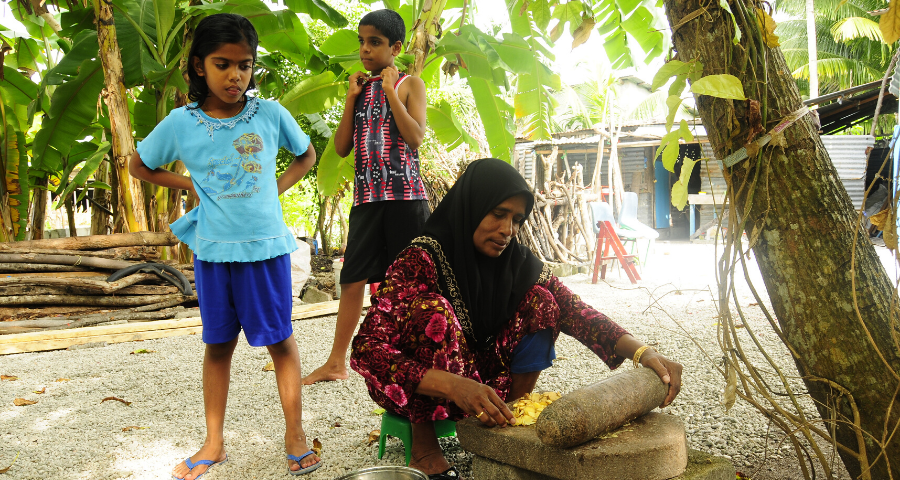How did the Government of Japan get involved with Nutrition for Growth (N4G)?
N4G was initiated by the United Kingdom in 2013 and is now being handed over to the Government of Japan (GoJ) as we will be hosting the 2020 Olympics. Because nutrition is multisectoral in nature, GoJ has created an intergovernmental taskforce to prepare for the event . My department – the Global Health Policy division at the Ministry of Foreign Affairs – is chairing the taskforce because we see the importance of nutrition for achieving Universal Health Coverage. . We have been working closely with the UK Government and the Bill & Melinda Gates Foundation to create international thematic working and advisory group to support the N4G process so the international community can be involved in the preparation and show not only what they have already done, but what more they will do to improve nutrition in local, regional and global settings at the Summit.
What is the Government of Japan’s ambition for the Tokyo Nutrition for Growth Summit 2020?
We want to focus our energy on preparation for the Summit so stakeholders come ready to make commitments, not speeches. To facilitate this, we will prioritise outreach to business, governments, UN, CSO and research institutions to encourage them to review current policy, practices and investments so they know what they can do in the coming years to help achieve the global nutrition goals.
We also want the Summit to reflect the shift in global discourse around nutrition since the first N4G Summit: nutrition is no longer considered only a matter of health. There is greater recognition of the double burden of malnutrition, as well as the connection between nutrition, agriculture, climate change and the economy so we want to include even more diverse stakeholders – government, donors, UN, civil society and business – who can make ambitious but realistic pledges to improve nutrition. And by sharing these pledges with the international community we believe this will help ensure everyone is held accountable for their commitments.
I am very optimistic about this new decade: we are better connected in so many ways so I think this is an opportunity to be ambitious.
Why do you think N4G is an important milestone?
This is a very important moment in global nutrition: it is the end year of the London N4G commitment, midterm of the Decade of Action on Nutrition, five years from the 2025 WHA targets deadline and 10 years away from SDGs. So it’s a really important chance to get together and discuss what we have done, what we want to do, and how we can find synergies to make our efforts more efficient. I am very optimistic about this new decade: we are better connected in so many ways so I think this is an opportunity to be ambitious about how to leverage new technologies, innovations and partnerships to do more together for better nutrition.
As the current N4G host, what has been most striking or surprising to you? Or, what is something new you have learned as a result of this work?
There is a lot of talk around tackling global challenges as one team but this isn’t always easy. But I’ve noticed in the nutrition community different stakeholders and organisations have greater intention and ambition to work together. There is generally a very cooperative spirit to achieve these global goals. I think this is also true from the private sector: investors are paying more attention to business responsibility and more people are demanding that companies to be conscious to the SDGs so I think it’s important that business is included in this solution-oriented process.

Have you faced any challenges in this process?
Many private firms are not always familiar with what they can do to contribute to better nutrition. So we are doing a lot of work to try to prepare and provide step by step information on how to think about what types of actions or concrete activities that they could either consider or implement that would help contribute to better nutrition, and the overall SDG agenda. But I’m actually quite optimistic about this because there is so much potential. The private sector produces and sells our food, labels and markets it – so this impacts how consumers understand nutrition and health which influences their decisions and behaviour. I think it’s very important we work more with them to think about what we can do in a productive way.
What is one tip you have for individuals, organisations, businesses or governments who want to get more involved in the N4G process or summit?
As part of the N4G process, we created working groups on different topics and to reflect the interests of various constituency groups. The chairs from these working groups will form advisory groups to help support their constituents and we will share more information on that in due course. In the meantime, I think the most important thing individuals and organisations can do is to review their own policies, processes and investments and consider where they can make changes that can positively contribute to better nutrition. To help with that, we have published a commitment making guide and additional resources to support stakeholders are forthcoming.

Nutrition Connect focuses on the intersection of public and private sectors across the food system – is engaging business important to the GoJ? Do you have any advice for others who are interested in public private engagement for better nutrition?
Private sector and business firms are a critical partner in the food system and key to making a difference to improving nutrition. Public-Private Partnerships are an important component of our overall operations but making formal partnerships with business firms and creating an MOU should not always be the goal. It is more about encouraging and facilitating a shift in mindset and business operations so companies can take more positive actions. CSR is important, but we also want companies to go beyond philanthropy and commit to responsible conduct. It is possible to align business goals and profitability while contributing positively to the health and wellbeing of society. Companies can do more than produce nutritious foods: they can help stimulate demand for healthy foods, improve access to healthy foods and share data to improve our understanding of consumer behaviour and nutrition gaps.
If you are inviting family or friends over for dinner, what would you prepare?
I grew up in the countryside where my parents cultivated rice for Sake, Japan’s authentic liquor. They also raised a variety of vegetables, fruits and herbs, and my father loved to catch fish in the river nearby. Because of this, I really appreciate fresh, seasonal and nutritious foods and love to prepare foods in a way that highlight their natural flavours and tastes. It would be such a pleasure to share such fresh foods with loved ones in the relaxing environment which is with fresh air, sunshine and flowers!

